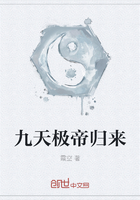That our little Fritz tends that way, ought to give Noltenius, Finkenstein and other interested parties, the very highest satisfaction. It is an excellent symptom of his intellect, this of gravitating irresistibly towards realities. Better symptom of its quality (whatever QUANTITY there be of it), human intellect cannot show for itself. However it may go with Literature, and satisfaction to readers of romantic appetites, this young soul promises to become a successful Worker one day, and to DOsomething under the Sun. For work is of an extremely unfictitious nature; and no man can roof his house with clouds and moonshine, so as to turn the rain from him.
It is also to be noted that his style of French, though he spelt it so ill, and never had the least mastery of punctuation, has real merit. Rapidity, easy vivacity, perfect clearness, here and there a certain quaint expressiveness: on the whole, he had learned the Art of Speech, from those old French Governesses, in those old and new French Books of his. We can also say of his Literature, of what he hastily wrote in mature life, that it has much more worth, even as Literature, than the common romantic appetite assigns to it. A vein of distinct sense, and good interior articulation, is never wanting in that thin-flowing utterance. The true is well riddled out from amid the false;the important and essential are alone given us, the unimportant and superfluous honestly thrown away. A lean wiry veracity (an immense advantage in any Literature, good or bad!) is everywhere beneficently observable; the QUALITY of the intellect always extremely good, whatever its quantity may be.
It is true, his spelling--"ASTEURE" for "A CETTE HEURE"--is very bad. And as for punctuation, he never could understand the mystery of it; he merely scatters a few commas and dashes, as if they were shaken out of a pepper-box upon his page, and so leaves it.















